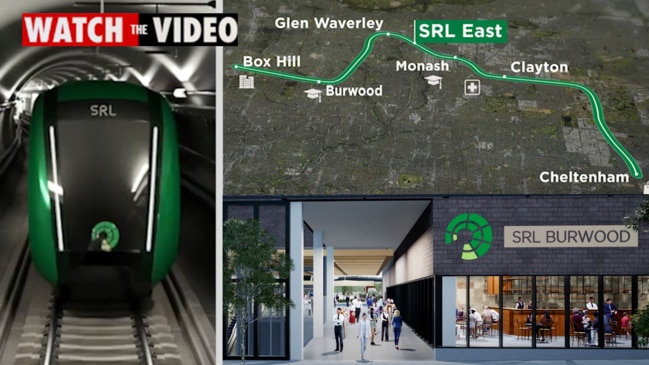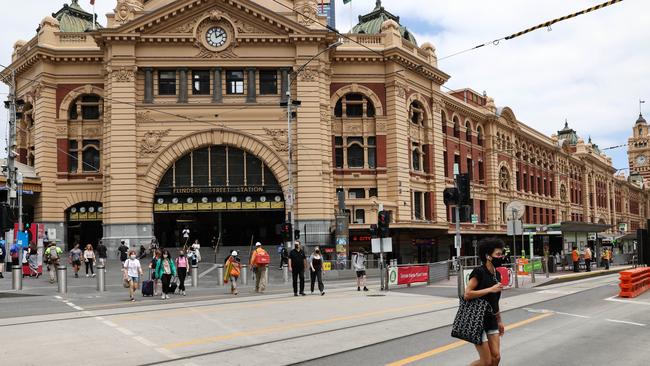Victorian train station crime: Dandenong ranks as Melbourne’s worst suburban station
New statistics have revealed the state’s most crime-riddled train stations, read what’s behind a surprising jump in offences being committed.

South East
Don't miss out on the headlines from South East . Followed categories will be added to My News.
Victoria’s most dangerous train stations can be revealed, with the number of crimes committed jumping from the previous year as the state remained lockdown during the coronavirus pandemic.
Crime Statistics Agency data shows a total of 7720 crimes were committed in 2020, compared with 7580 in 2019.
Dandenong station retained its top spot as Melbourne’s most crime riddled suburban station.
The stop in the city’s southeast recorded 539 offences in 2020, up from 347 in 2019 – and higher than the previous four years.
There were 139 crimes busted by police at that station between January and July in 2021.
Dandenong had more than double the number of crimes than Broadmeadows for that same period last year, which was third-placed for the suburbs at 65 incidents.
Melbourne’s top 10 stations for trouble on the network in 2021 include: Flinders Street (285) Southern Cross (202) Dandenong (139) Footscray (89) Broadmeadows (65) Sunshine (60) Caulfield (55) Ringwood (54) Frankston (49) and Boronia (37).
In regional Victoria, Geelong and Traralgon stations were tied, with both stops recording the same number of offences – 31 detections.
The smaller country town with a fraction of the population, beat out the state’s larger regional centres.
Bendigo followed in third place with 20 crimes, higher than the bigger city of Ballarat which recorded a total of nine offences across both Ballarat and Wendouree stations.
Other major cities including Shepparton, Wodonga, and Warrnambool each saw just two incidents recorded.

A Victoria Police spokesman said the “majority” of offences detected on the public transport network during 2020 were due to COVID-19 enforcement.
This included fining commuters over not wearing masks or for breaching the strict travel restrictions in place.
“It would be inaccurate to conclude actual crime increased across the rail network – with around 200 fewer people the victim of serious crimes against the person such as robbery, assault and sex offences,” he said.
Public Transport Users Association spokesman Daniel Bowen said safety would improve on the network as more passengers returned.
“As for people not wearing a mask, you would hope people have become more used to their obligations,” he said.
“Compliance does appear to be pretty high but people need to remember the rules and follow them.”
A transport department spokeswoman said authorities worked closely “to ensure safety for everyone across the public transport network, including at train stations”.


